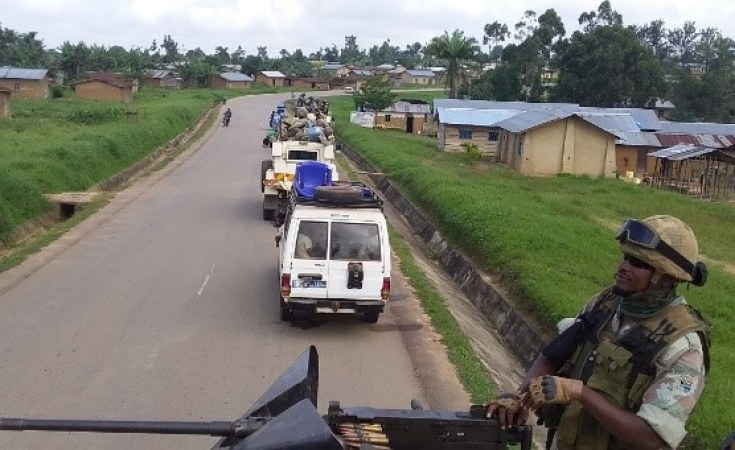At least 46 people, half of them children, were killed in a militia attack on a camp for displaced people in northeastern Democratic Republic of Congo (DRC).
A militia group involved in numerous brutal ethnic killings in the area attacked the camp in northeastern Ituri province overnight Sunday to Monday.
Richard Dheda, an official of the local administration for Bahema Badjere in Djugu territory, confirmed that the Kivu Security Tracker (KST), a network of observers based in DRC's restive east, counted "at least 46" dead in the Lala camp.
A community leader, Desire Malodra warned that the toll was still provisional as the search for other victims continues.
Ituri province is one of eastern DRC's most violent areas, where attacks claiming dozens of lives are common.
La #MONUSCO condamne avec la plus grande fermeté l'attaque ignoble survenue dans la nuit du 11 au 12 juin dans le site de personnes déplacées de Lala (situé à 75 Km de Bunia, Territoire de Djugu, Ituri) ayant fait plus de 45 mort. COMMUNIQUÉ DE PRESSE https://t.co/OLY50xzNoe-- MONUSCO (@MONUSCO) June 12, 2023
Meanwhile, in the neighbouring province of North-Kivu, an attack by suspected Islamic State group-affiliated ADF rebels left eight dead on Sunday, according to sources cited by news agencies in the area.
Violence and lack of democracy
Much of eastern DRC is overrun by armed groups, a legacy of regional wars that flared up in the 1990s and 2000s.
As general elections are scheduled for the end of the year, most of the opposition is criticising the government for its inability to bring back peace.
Opposition leader Martin Fayulu has already warned about the insecurity and the lack of preparation for the coming elections, scheduled for December 2023.
This as Martin Fayulu of the Engagement for Citizenship and Development party, told RFI English that the government and the president, Felix Tshisekedi, are incapable of any kind of action.
He says the humanitarian situation is catastrophic and blames what he claims is Tshisekedi's weakness in the face of Rwandan president, Paul Kagame, for the violence spreading in the east of the country.
He now worries about the possibility of organsiing a free, fair and credible election later this year, which, he says, could help restore order in the country.
"Mr Tshisekedi has set up an independent electoral commission (CENI) that he has control over," he added, "and failed to reform unfair electoral laws. These are all are favourable only to him."
Rethink the after MONUSCO
The UN peacekeeping mission in the country, MONUSCO, also condemned the "vile attack" in Ituri in a statement, and reported "more than 45 dead and a dozen injured."
Criticised for its lack of effectiveness, theMONUSCO is suposed to withdraw progressively, as annouced last week by the UN under-secretary-general for peacekeeping operations, Jean-Pierre Lacroix, who toured the country for five days.
For Martin Fayulu, the mission should not withdraw, however, without being replaced.
"As long as we don't have a responsible and legitimate government, MONUSCO should stay," he told RFI English, "but its mandate and its name should change. We need a UN mission that resembles the one we had in 1960, after the independence, a mission that is able to fight and support the army's effort to bring peace."
The force has a current strength of about 16,000 uniformed personnel.


